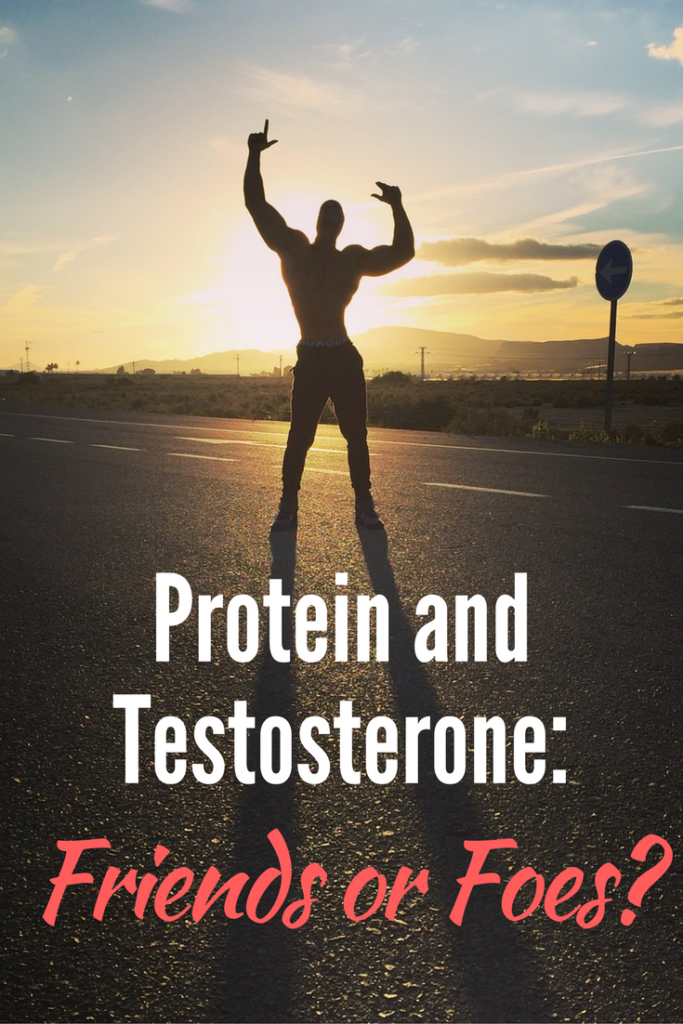Let’s Build Some Serious Muscle
When it comes to the relationship between protein and testosterone, surely it’s common knowledge that they’re best buddies, right? But how about if you were to learn that their brotherhood is not as cut and dried as you may think? Yes, as shocking as it sounds, you may need to reconsider your protein needs or risk hurting your hormonal profile.
The science behind testosterone and protein…
Before mentioning the interesting results of studies relating to protein and testosterone, it is crucial to keep in mind that protein is still extremely important.
We are not recommending you significantly reduce your current intake…
Muscle growth will not occur without sufficient protein, but rather strike an optimal balance between the two.
Now let’s carry on into an adventure in muscle science land!
Diets With a High Protein Vs. Carbohydrate Ratio Are NOT Superior For Muscle Gains
A study published in the Journal of life sciences revealed that subjects consuming diets with a lower protein: carb ratio possessed higher blood levels of testosterone, as well as a reduced concentration of the catabolic hormone cortisol.

Another determining factor in the slightly elevated testosterone levels could be related to increased circulation of cortisol binding globulin, which would reduce circulating cortisol and help boost testosterone.
When it comes to net effect, both macronutrient splits are pretty close in free testosterone levels.
If carbs worry you, there is still hope; you can employ a carb cycling plan to get the best of both worlds!
Protein Supplementation Does Not Improve Post-Workout Response
A study conducted in 2015 found that consumption of a post-workout protein drink (composed of 20g protein, 6g carbs, and 1g fat) was not able to elicit enhanced signaling of proteins involved in muscle synthesis such as Akt, mTOR, p70S6k, and RPS6, nor increased levels of anabolic hormones such as insulin, growth hormone, and testosterone, in comparison with the placebo group.
So, instead of opting for an expensive designer protein powder that may not deliver an added advantage to you upon consumption, instead have a hearty meal with protein, carbs, and fats.
The immediate post-workout window that is worshipped may be a myth after all since loading up at this point did not improve muscle synthesis.
Higher Protein Intake Is Not Beneficial On Testosterone Levels…Fat And Overall Caloric Intake Is…
Too many athletes believe that increasing protein intake will directly enhance the rate of muscle protein synthesis, but this could compromise real gains especially when fat and carb intake suffers as a result.
This is what a study conducted was able to highlight to us. The study involved 12 men with prior training experience, training twice weekly over the course of 17 days and performing either the jump squat or bench press. Blood values of cortisol and testosterone were measured around the workout window and compared.
- Testosterone levels measured at the post-workout phase for each exercise showed an increase, indicating what we already know – that training is a powerful anabolic stimulus.
- Cortisol levels normally peak after a workout; following the jump squat levels were reduced!
In addition, the study also examined the effect nutrition could have on your testosterone levels. The following were observed:
- Subjects who consumed higher levels of fat during the day leading up to the workout had measurable increases in blood testosterone levels when checked prior to starting the session. This could be very useful in boosting motivation and drive before hitting the gym.
- Higher fat intake was linked to higher testosterone levels. This is well established today since many hormones are synthesized from cholesterol (and low fat normally results in reduced cholesterol intake as well).
If you’re looking to gain muscle mass while remaining lean, omega-3 and 6 fats are the way to go. Of particular interest is one of the omega-6 fatty acids, known as conjugated linoleic acid (CLA), found in meat and dairy products and also popular as supplements. In studies, it has been shown to significantly boost post-workout testosterone levels, critical at times when muscle repair needs to resume.
So a steak post-workout can be much more efficient for muscle repair than that protein powder, but for convenience, CLA supplements may be a better choice for you.
Higher Protein Intake Beneficial in Older Men
A study conducted at the University of Massachusetts found that higher protein intake may boost testosterone levels in older men, eliciting an opposite sort of effect than in younger men. Prior to the study the men were found to have high levels of SHBG, but take that with a grain of salt as their protein intake was likewise abnormally low (<80g/day).
The men in the study ranged from 40-70 years of age. Until more studies are done with younger men as well, these effects cannot be assumed to replicate themselves.
Wrap-Up
Though protein remains important in the muscle-building process, it will not directly improve your hormone levels and may hurt it if overconsumed. If your testosterone is so low that it is troublesome, natural sterols may be your best option. Finally, don’t be afraid of fat.
Fats (the right ones) are your friends and can make the world of difference between an average physique, and one that is truly phenomenal!
- Protein And How To Increase Testosterone - October 19, 2016